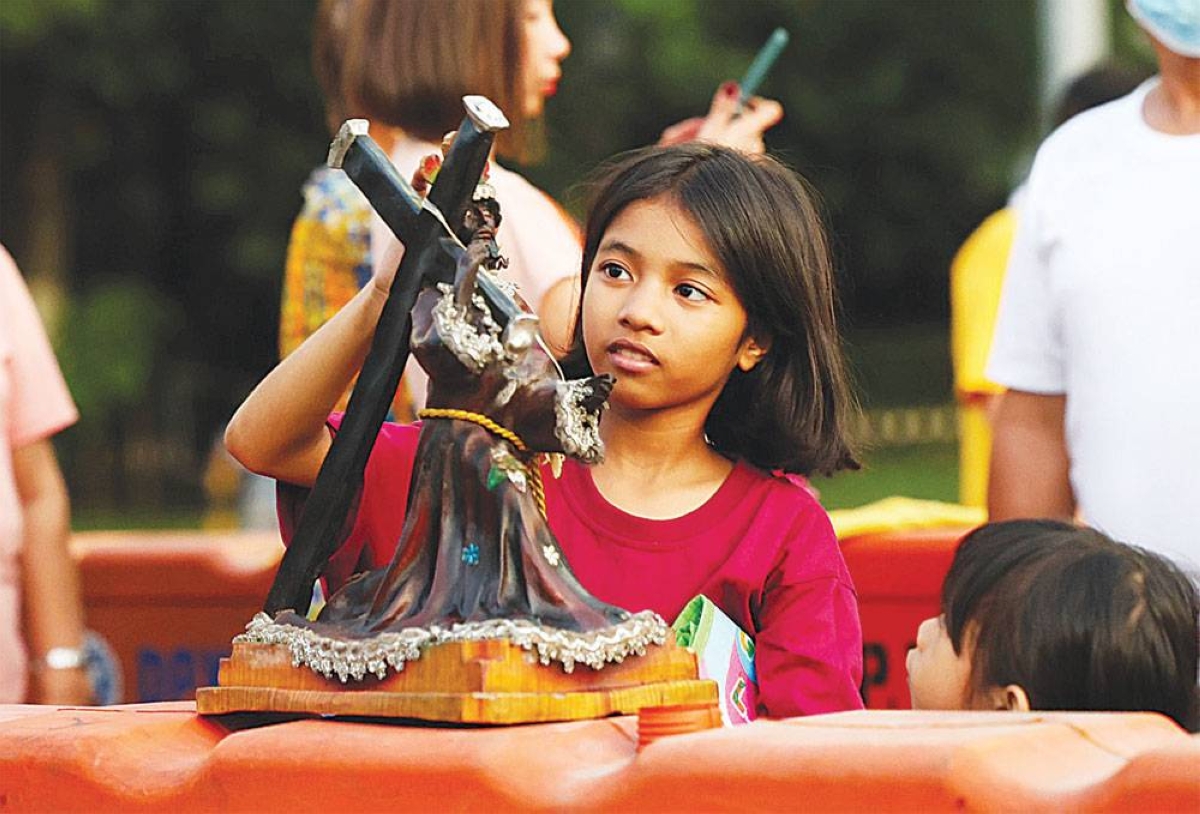A liquor ban will be enforced in Manila from January 8 to 10, coinciding with the Feast of the Black Nazarene, according to Mayor Maria Sheilah “Honey” Lacuna-Pangan. The decision was made based on the recommendation of Police Chief Arnold Thomas Ibay, with the aim of ensuring a safe and orderly celebration. The ban on liquor, along with a gun ban, is intended to reduce the number of incidents during this religious event.
In addition to the liquor ban, Lacuna-Pangan emphasized the strict enforcement of mask-wearing among devotees participating in the Traslacion or procession of the Black Nazarene throughout the city. This measure is being implemented to prevent a surge in Covid-19 cases. The mayor also responded to requests from Catholic Church officials and fire authorities by imposing a ban on the sale, manufacture, distribution, and use of firecrackers and other pyrotechnic devices after the procession on January 9. This ban is aimed at ensuring the safety of the public and minimizing the risk of accidents.
To ensure the safe, orderly, and peaceful holding of the Traslacion, Lacuna-Pangan has directed all relevant departments, bureaus, and offices to fulfill their respective roles. One of the key measures being taken is the clearing of procession routes from any obstructions that may pose a threat to devotees. This includes removing tree branches, bundled wires, broken glass, and addressing open manholes that could potentially cause delays during the procession.
The Traslacion is considered one of the largest religious events in the Philippines, with approximately 80 percent of the population being Catholics. To maintain security and provide assistance, around 12,000 police personnel will be deployed during the event. However, security is not the sole concern. The Philippine Red Cross (PRC) has announced that more than 1,000 trained first-aiders will be stationed at 10 different locations, along with welfare desks for devotees who may require medical attention. The PRC’s emergency response unit (ERU) personnel, emergency medical teams, and foot patrollers will also serve as mobile first-aiders.
To further enhance medical support, an Emergency Field Hospital (EFH) will be set up near the Kartilya ng Katipunan in Manila. This will supplement the existing EFHs operated by the Department of Health (DoH) and the Manila Disaster Risk Reduction and Management Office (MDRRMO). Richard Gordon, Chairman and CEO of the PRC, emphasized the organization’s commitment to ensuring the safety of all attendees at religious mass events in the country. He stated that the PRC will mobilize volunteers from different chapters in the National Capital Region (NCR) and Rizal province to address the medical needs of devotees.
To provide immediate medical assistance to devotees coming from various regions of the country, 17 ambulance units, one fire truck, and two rescue boats will be strategically positioned starting from Sunday. Additionally, 20 ambulance units from PRC in Regions 3 (Central Luzon) and 4A (Calabarzon) are on standby. The PRC has strategically placed its assets and logistics near the Quiapo Church and Quirino Grandstand from January 7 to 10.
The implementation of the liquor ban, strict enforcement of mask-wearing, and the ban on firecrackers and pyrotechnic devices aim to ensure the safety and well-being of all participants during the Feast of the Black Nazarene. The coordinated efforts of various agencies, including the police, Philippine Red Cross, and local government, are focused on providing a secure and orderly environment for this significant religious event.







